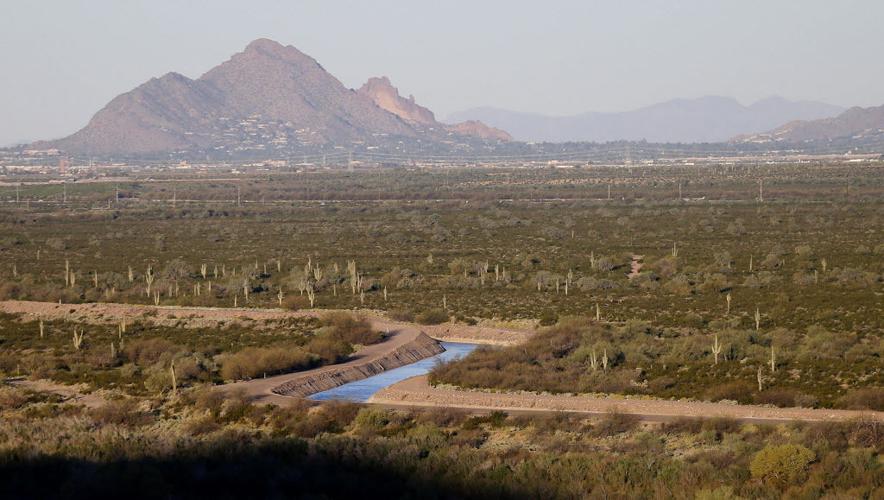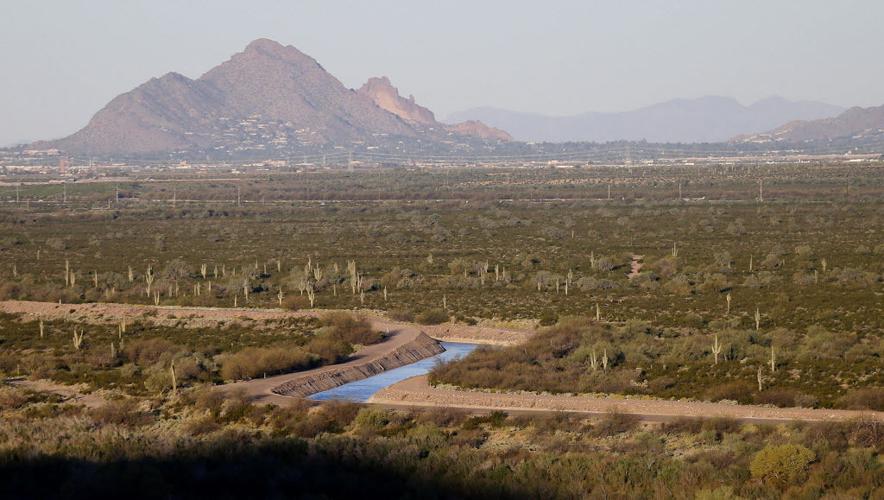PHOENIX — State lawmakers are balking at a proposal to let cities approve new subdivisions despite the lack of an assured water supply.
Rep. Brenda Barton, R-Payson, told House colleagues the Senate-approved measure would simply provide options for cities in Cochise and Yuma counties to make their own decisions about whether there is sufficient water. She even offered some concessions to require the cities to implement water-saving measures, ranging from xeriscaping along roads to requirements for low-water-use toilets.
But Barton had to yank SB 1268 bill from consideration earlier this week amid bipartisan opposition from those who said it would set a bad precedent and ultimately undermine the state’s historic 1980 Groundwater Act designed to ensure that there is enough water to meet long-term needs. Whether she will try again remains to be seen.
Arizona law has strict requirements for new construction in each of the state’s five “active management areas.”
For the Phoenix, Prescott and Tucson areas, the goal is “safe yield” by 2025, when the amount of groundwater withdrawn is no more that what replaces it. Pinal and Santa Cruz have other goals.
Outside those areas, developers are required to get a determination from the Department of Waster Resources whether there is a 100-year assured water supply.
But the lack of that does not prevent them from building. The only requirement is they disclose any potential inadequate supply to the initial buyers.
That option, however, is not open to developers in counties where supervisors have voted to mandate a showing of a 100-year supply, something Cochise and Yuma counties have opted to do.
Sen. Gail Griffin, R-Hereford, introduced SB 1268 after a judge ruled the developers of the proposed 7,000-home Tribute subdivision in Sierra Vista could not prove that 100-year supply, at least in part because of claims over the San Pedro River. But that ruling could have broader implications for the long-term growth of the city.
Griffin’s legislation would allow the city to opt out of the county requirement.
Barton, who is carrying the bill for Griffin in the House, told colleagues there is no reason for developers to have to do more than file the report with the Department of Water Resources. And she said cities are in the best position to know what works for their own areas.
The idea, however, provoked a firestorm of objections.
“In Arizona, the biggest issue we have is water,” said Rep. Rusty Bowers, R-Mesa. He detailed the various efforts already undertaken to ensure the state has enough water for future growth beyond the 1980 law, from some communities treating brackish water to the construction of the Central Arizona Project to bring Colorado River water to the state’s interior, a project on which the state still owes $1 billion.
And Bowers rejected the suggestion this is only a small exception to the 1980 law.
“This could set a precedent that other cities that are looking for commercial support, that want to have a strong, viable economic base that may be tempted to put their water supply at risk,” he said, approving new developments for short-term financial gain without the assurances that the water will be there to sustain not only the new homes but the ones already there.
Rep. Ken Clark, D-Phoenix, said that requirement for a 100-year water supply “should be held sacrosanct.”
Clark was not impressed by Barton’s willingness to add water-conservation requirements to the measure.
These include things like adopting a plan for the reuse of reclaimed water, funding water conservation education programs, providing cash to replace inefficient toilets and allowing only drought tolerant vegetation on public rights of way.
“You can do all the xeriscaping you want ... and you’re still not addressing the 100-year water supply, you’re still not maintaining it,” Clark said. “Unless you’re addressing or protecting the 100-year water supply you are creating a loophole that somebody down the road will probably exploit.”
Rep. Lisa Otondo, D-Yuma, told lawmakers that while the legislation would affect cities in her county, none were asking for this change. And she echoed the concerns of others that once lawmakers start making exceptions to requiring a proven water supply “you begin to unravel state water policy.”
Otondo said this is about more than the right of cities to seek new developments, unfettered by county water-supply requirements.
“If a city does not have to prove an adequate water supply that the counties currently require, what is going to happen to the homebuyers?” she asked. “It could end up stranding homebuyers in houses that run out of water.
Clark put a sharper point on that.
“You’re going to give somebody a 30-year mortgage on a house, and you don’t know that water supply’s going to be there and their house is going to be worth something when they go to retire,” he said.





